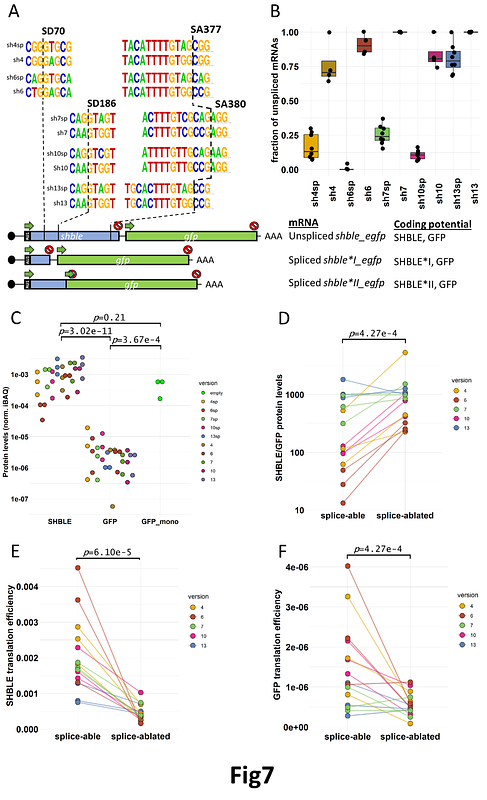Pervasive translation of the downstream ORF from bicistronic mRNAs by human cells: impact of the upstream ORF codon usage and splicing

Pervasive translation of the downstream ORF from bicistronic mRNAs by human cells: impact of the upstream ORF codon usage and splicing
Paget-Bailly, P.; Helpiquet, A.; Decourcelle, M.; Bories, R.; Bravo, I. G.
AbstractIn this work, we present a straightforward model to study gene expression regulation from virus-like bicistronic mRNAs in human cells, composed by a short shble upstream ORF and a reporter egfp downstream ORF. We have engineered thirteen synonymous versions of the shble ORF to explore a large parameter space in compositional and folding features, as well as differences in propensity to undergo splicing. Our experimental model focuses on the control and modulation of shble translation elongation and their effects on downstream translation: i) regarding translation initiation, all constructs share identical 5\'UTR, ribosomal binding site and shble start codon context; and ii) regarding egfp translation, all constructs share identical shble stop codon context, spacer between shble and egfp and the full egfp sequence. Our results show first that the human translation machinery can translate the downstream ORF in bicistronic mRNAs, independently of the characteristics of the upstream ORF. Even if GFP protein levels are hundreds of times lower than SHBLE protein levels, our results challenge the textbook interpretation positing that the eukaryotic translation machinery does not handle the downstream ORF in bicistronic transcripts. Second, we show that synonymous recoding of the upstream ORF determines its own translation efficiency, can uncover cryptic splice signals, and largely conditions the probability of translation from the downstream ORF. Our results are consistent with a leaky scanning mechanism at play for downstream ORF translation from bicistronic mRNAs in human cells.
